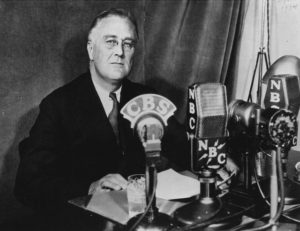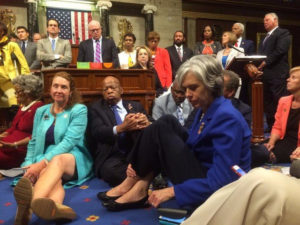
Driver receives assistance in Pearland, TX during Hurricane Harvey
This past weekend, Twitter and Facebook posts about the Mayweather-McGregor fight gave way to posts about Hurricane Harvey making landfall in Texas, and causing tremendous flooding devastation. Since then, as more traditional media such as broadcast and cable TV news are making admirable efforts on the scene with live reporting (and even some rescue work), social media users are sending around gobs of information, donation and volunteering tips, and rescue requests. Here are some of the highlights of social media activity in Houston, around the U.S. and in other countries as well:











